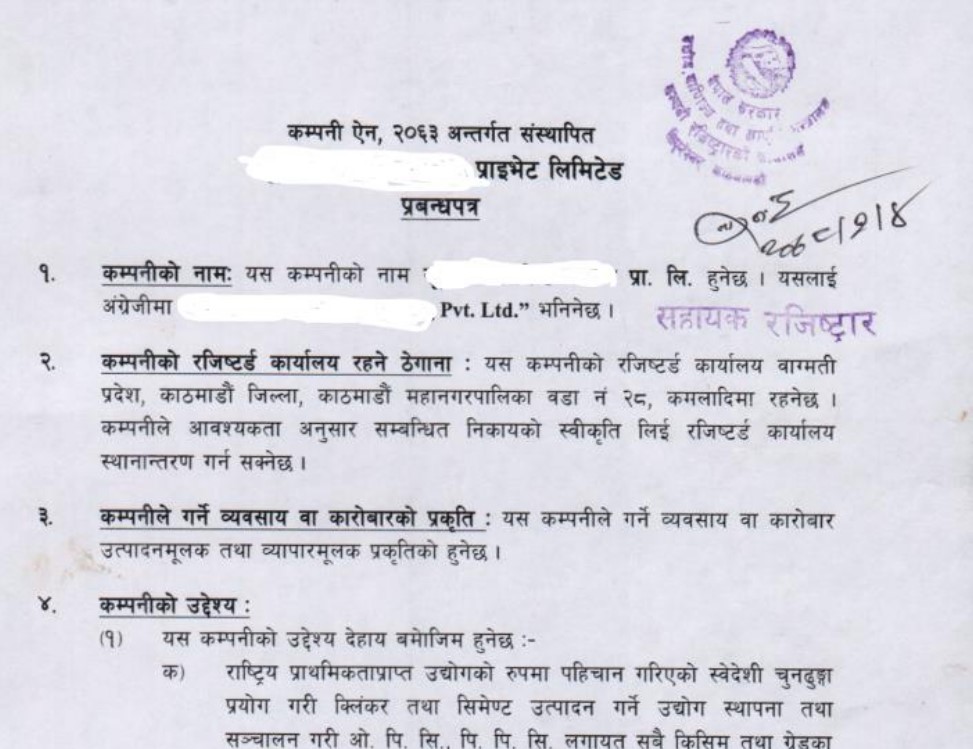You started a new business with your friend. You trust your friend and hence made her your co-founder. And then, you divide the work/obligations and rights orally. What if your co-founder does not fulfill her obligations as discussed? What if she starts a competing business? What option do you have? Regret? Feeling angry and sorry for yourself? Taking legal actions?
Well, the last part would be easier if you had a co-founder agreement in place.
Not just this case, you, as an entrepreneur have to often deal with the suppliers, and dealers, hire employees, and negotiate with other companies. Just imagine being scammed by any of your stakeholders. The world is not the same as it used to be and no-one can be trusted. Well, you can’t change the world but having a well drafted contract can protect you, your business and money against any risk or scam.
So, it's better to be safe than sorry, right? If you are a new entrepreneur and are still confused whether to hire a lawyer for drafting your contracts or do it on your own, you’re at the right place.
So, lets dig in.
Being an entrepreneur, you will comprehend the difficulties that start-ups frequently encounter. Due to their inherent lack of resources to address constantly evolving challenges and demands, start-ups are naturally chaotic. So, it's understandable how start-up owners usually neglect contract management, shoving them aside and focusing on competing priorities such as financial and resource management. Usually, to cut off some expenses, entrepreneurs draft major contracts themselves by relying on templates from the internet. However, using template contracts without the assistance of a competent legal counsel is risky and can easily outweigh the apparent benefit of saving money by using a free online contract. The most common risks include getting scammed and facing legal consequences. Therefore, as an entrepreneur it is crucial for you to understand what contracts are, how they work and how hiring a lawyer to draft your contract protects and sustains your business.
What is a contract?
Contracts specify the terms and conditions of a deal or connection between two or more parties and are enforceable in court. In a variety of business contexts, they can be used to establish joint ventures and partnerships, hire employees, buy and sell goods and services, and more. It is used to regulate a variety of activities, including the purchase and sale of products and services, employment contracts, and more complicated business arrangements. An offer, acceptance, consideration, and the desire to forge a legally binding agreement are the fundamental components of a contract.
How does a contract work?
Here is a brief overview of how a contract works:
- Offer: Making an offer is the first stage in creating a contract. This can be a proposal made verbally or in writing to another party outlining the details of the agreement. The other party must be informed of the offer, which must be explicit and firm.
- Acceptance: After an offer is made, the other party has the option of accepting it or rejecting it. If they accept, they are required to let the offeror know. It's vital to note that the acceptance must be unconditional and reflect the parameters of the initial offer.
- Consideration: In order for a contract to be enforceable, consideration is required. This implies that both parties have to provide each other with something of worth. Consideration can take the form of cash, valuable goods or services, or anything else.
- Intention to make a legally binding agreement: A legally binding agreement must be intended to be created by both parties. This indicates that they are aware of the contract's legal ramifications and that they intend to be bound by its provisions.
- Legal capacity: In order to enter into a contract, both parties must be of sound mind. They are thus of legal age, mentally sound, and free from coercion or improper influence.
- Execution: Contract execution is required after agreement has been reached. This means that each party must formally acknowledge their consent to the terms of the agreement by signing the paper.
So, perhaps now you understand what a contract is and how it operates. But did you know that occasionally a contract cannot be executed due to some missing legal requirements?
Points to consider while executing a contract
Yes, that’s true. Sometimes, a contract cannot be executed because of missing legal requirements. Here are a few instances of missing legal requirements that can render your contract unenforceable or void:
- Lack of capacity: A contract may be void or unenforceable if one or both parties are incapable of entering into it (such as minors or those who are mentally ill).
- Illegal purpose: If the contract's purpose is illegal, such as the selling of illegal narcotics, it may be void or unenforceable.
- Absence of consideration: In order for a contract to be legally enforceable, the parties must exchange something of value as consideration. The contract might not be upholdable if one party doesn't give the other consideration.
- Error or fraud: The contract may be void or unenforceable if there was an error or fraudulent behavior involved in its formation.
- Failure to comply with the formalities: In order for a contract to be legally enforceable, it may need to follow certain formalities, such being in writing and signed by both parties. The contract might not be enforceable or void if these requirements are not met.
The parties cannot lawfully enforce the agreement, and any duties or promises made within will not be enforceable if a contract is declared void or unenforceable for failure to comply with legal requirements. A contract must therefore, be created or entered complying with all the applicable laws to enforce it in court.
Hire a lawyer or do it yourself using online templates?
Do you think templates from the internet can help you prepare a good contract and protect you?
Absolutely not, vague phrasing is one of the most prevalent issues with contracts available online. Contracts must be prepared with a certain amount of detail without ambiguous terms which cannot be provided through contracts obtained online.
Important clauses, such as information on how to terminate the contract, payment for breach of contract, and others, are also absent from online obtained contracts. There are numerous special conditions that must be included in your contracts, depending on your business and industry. If you don't take care of these issues, you can end up embroiled in pricey and expensive litigation.
A minor mistake in a contract can cause you your business. Once, a company called Roger Communication Inc, was nearly forced to pay 1 million Canadian dollars ($76,000 USD) to its opponent Bell Aliant Regional Communications Inc. Rogers and Bell Aliant had a lease of telecom equipment.
The legal dispute was based on a misplaced comma in the 14-page agreement which created confusion as to when the contract can end and the Roger was about to pay millions because the comma in clause “thereafter for successive five (5) year terms, unless and until terminated by one year prior written notice by either party." which intended that the contract could end at any moment by providing one year notice whereas the actual intention in the contract was that the contract could be ended only after 5 years.
Fortunately for Rogers, the Commission changed its mind after seeing the French-language version of the contract. Because there was only one potential interpretation for the French version, the Commission determined that it clarified the uncertainty in the English version.
This case demonstrates how even the smallest punctuation error in a contract can result in grave consequences. Therefore, similar to the software code, contract language must be properly written for everything to function as intended. Make a mistake, and everything collapses.
Now, imagine drafting an important contract without any legal assistance, how would it end. Trust me it might cause you YOUR EVERYTHING, all the hard work, all the reputation and money . The regret of being reluctant to call a lawyer to draft your contract in order to save yourself some cost and end up losing everything, will haunt you for the rest of your life.
So, protect you and your business before it’s too late.
Why hire a Lawyer to draft your contract?
Including a lawyer in the process of drafting or reviewing your contract can help you stay safe and steer clear of any future risk or legal squabbles. Lawyers are taught to draft contracts that expressly state what each party will do and to foresee potential issues. Lawyers scan contracts that others have written for important provisions that might be missing and, if necessary, advise the addition of new clauses. Lawyers will pay close attention to your needs in order to determine the sort of contract you need and the precise terms it should contain.
Additionally, they will spell down what will happen if the other party doesn’t comply with their contractual obligation. This might reduce your liabilities and account for events beyond your control. A lawyer can advise you on special clauses or draft a proper agreement that pushes the envelope in your favor, potentially saving you a lot of money.
Furthermore, Lawyers with corporate law experience can easily identify flaws in the contract that could lead to risky obligations. During the drafting and negotiation stages of contract development, your lawyer can correct any potential wording that could aid the opposing party if present could result in a later dispute, such as overtime payment in an employment contract.
In the Corporate world, rules can change every now and then and the data you have might be outdated to safeguard you in the contract. Contract lawyers are adept at ensuring that agreements are just for all contract parties. Having proper knowledge of law, they will be able to draft the agreement in a way that will shield your interest from future legislative changes and/or revise it if that becomes required.
Why specifically hire a start-up lawyer ?
Hiring any lawyer is beneficial but hiring a lawyer who can actually understand your requirements as a start-up owner and act in your best interest to set and protect your new business, is the right lawyer for you. Who else can be a better lawyer for a start-up than a start-up lawyer themselves? Start-up lawyers help you understand your best interest and act accordingly.
You are in your early days of start-up and need a lawyer to give you suggestions about what you should do as a start-up owner, what should be your priority, what mistakes should you avoid and most importantly what are your rights and responsibilities towards your stakeholders. Start-up lawyers have been trained to work with start-ups and help them groom. They can understand your obstacles, necessity , strength and interest and guide you in the right direction. It is true that well-experienced lawyers can provide pretty good suggestions but, they often tend to treat all the businesses in a similar manner and provide generic advice which in case of start-ups might not work.
You, as an entrepreneur, need a lawyer who can comprehend the core of your company, its profitability, and it's driving factor. In the early days of your business, you need to conclude contractual agreements with a large number of people such as your employee, co-founders, suppliers, distributors, service-providers, agents and sales representatives based on your business. Since, you have no idea how to protect your interest against your stakeholders. You must hire a lawyer to guide you through this. He must ideally be open to coming up with every idea that helps to protect your interest against any future harm/risk and save your start-up as much money as feasible.
Based on your due interest, the start-up lawyer intend to prepare contracts in a modular way so that it is "self-sufficient" and the variables like duration, the scope of services, fees, and other operational elements can be altered in the future as per the requirement , reducing any future risk that can arise because of any change in the variable. ‘
Furthermore, hiring a start-up lawyer will be more cost efficient than hiring a well-experienced lawyer.
So, what are you waiting for? Why not Book a Free Consultation Call with us! Also, don’t forget to share this to your friends who are starting up or own a business because sharing is caring.









